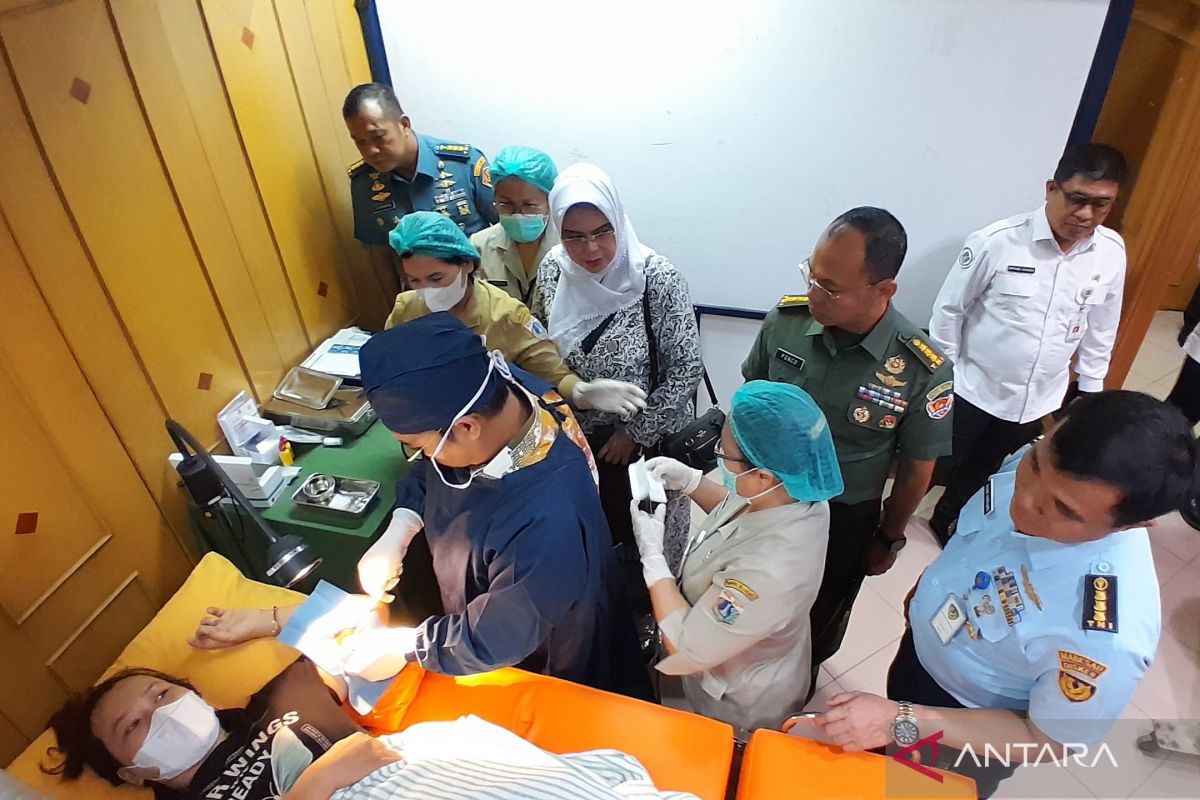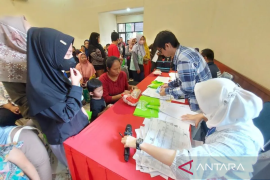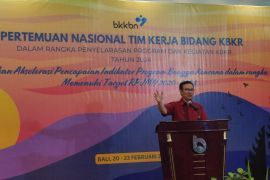BKKBN Head Hasto Wardoyo on Monday said that the collaboration is focused on improving special family planning services in disadvantaged, remote, border, and island areas as well as transmigration and slum areas.
According to him, the KB program is part of efforts to improve the quality of human resources.
"Our job is to change the community's mindset. If, previously, we focused on population control, now, our focus is on improving the quality of human resources, one of which is by increasing the demand for family planning in the community," Wardoyo informed.
He said the current total birth rate in Indonesia is 2.1. "We have achieved this even before the end of 2024," he disclosed.
Besides reducing the birth rate, the KB program also aims to regulate birth spacing. Too close birth spacing can increase the risk of anemia in the mother and stunting in the baby, he pointed out.
"Therefore, contraception comes in handy to regulate birth spacing for healthier kids," he said.
According to the World Health Organization (WHO), the ideal birth spacing is 36 months.
Meanwhile, the PDTT Ministry's director general of construction and transmigration area development, Danton Ginting Munthe, emphasized the importance of using micro data based on names, addresses, and ecology to improve family quality.
"We need village data (gathered from) neighborhood data, family data, and village resident data (for this program)," he said.
Currently, among the 4,761,776 young women in villages, at least 4.2 million have normal nutritional status and the remaining 502,429 have anemia, he informed.
Teenage girls who are anemic are at risk of giving birth to stunted children in future, Munthe said.
In order to tackle anemia in young women, 2,576,303 women have been examined and blood-added tablets have been given to 3,880,106 young women.
Meanwhile, the number of prospective brides and couples of childbearing age in villages has been recorded at 663,737. At least 378,233 of them have undergone health checks and 361,055 have taken part in marriage preparation counseling, he informed.
According to government data, currently, there are still 1,872,015 vulnerable families at risk of stunting in villages, and 898,264 of them have family cards.
The government will use this data as input in designing and implementing quality family development programs, which will include efforts to prevent and handle stunting.
Related news: Optimizing demographic bonus guarantees welfare of teenagers: BKKBN
Related news: Counseling important to boost postpartum family planning: Ministry
Translator: Lintang Budiyanti P, Resinta Sulistiyandari
Editor: Rahmad Nasution
Copyright © ANTARA 2023












